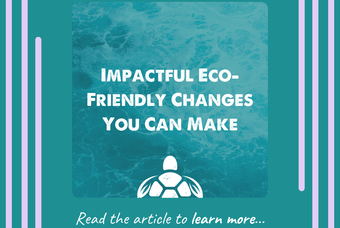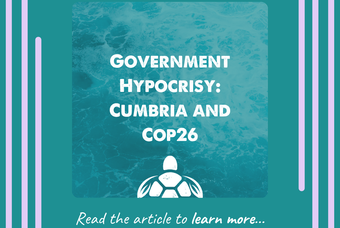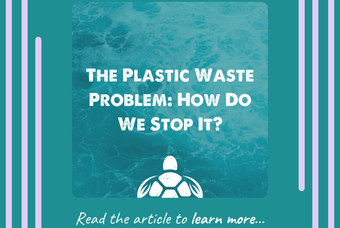The News-Hub/ Articles
Back to Articles
Recommended Articles
Government Hypocrisy: Cumbria and Cop26
What is Cop26 and Why is it Important?
Last year, the UK government announced that, due to the pandemic, the UN Climate Change Conference that was scheduled for November 2020 would be delayed by a year. The summit, an opportunity for representatives of every country to meet and discuss climate issues on a global level, has been held every year since 1995, and in 2021 it will finally be Britain's turn to host Cop26 in Glasgow. The whole world will be watching, and the event will be heavily covered by the international political press, so it is very important for our nation to be seen to be doing everything we can to counter the climate crisis.
Boris Johnson will be present, as well as other prominent members of the cabinet, and they will be under a lot of heavy scrutiny. This is perhaps why the Conservative government has recently made such an effort to keep climate action at the centre of the cultural discussion with new measures and pledges. The US Special Presidential Envoy for Climate John Kerry will attend, as well as President Joe Biden (who is already not the prime minister's biggest fan) in order to celebrate the American return to the Paris Climate Accord. A big effort is required to look good in front of the American administration and to not look like hypocrites on an international scale. The pandemic and subsequent damage to the British economy has put a new focus on the climate by providing the opportunity to “build back better” using a ‘green recovery’ that prioritises investment in renewable energy sources. However, climate activists and journalists are getting the impression that the government's new commitment to the planet might be all style and no substance, when in reality the Conservative obsession with business, fossil fuels and easy money-making opportunities stands strong behind the scenes.
As part of the promise of a green recovery from the pandemic, Boris Johnson in December announced a ten-point plan to create green jobs, as well as a commitment to cutting carbon emissions by 68% over the next decade. Of course, actions speak louder than words. Here are some of his words: “We will host Cop26 in Glasgow in November, and rally as many nations as possible behind the target of net zero by 2050, leading by example since the UK was the first major economy to accept this obligation in law.” Overseas aid will be aligned with the Paris Agreement goals of keeping global heating to 2 degrees Celsius by the end of the century. Protecting biodiversity and the general health of the oceans will also be priorities.
Since then however, the government's actions have told a different story than their carefully structured rhetoric; two different reports have been published which contend the statements made by the Prime Minister. The first, written by the Public Accounts Committee (PAC), claims that the government has no actual plan to help them meet climate change targets, and that strategies for reducing emissions are yet to be agreed, let alone implemented. The other, published by the Business Committee, predicts that the Cop26 summit will be a failure and an embarrassment unless the country sets clear goals and works towards them.
The government declares both reports to be inaccurate and unfair, yet when you examine the methods that the government is using to try and cut domestic carbon, they do all appear to be either poorly organised or false promises. Britain looks unlikely to meet its long term carbon goals and, according to the Labour PAC Committee Chairman Meg Hillier, this is worsened by the fact that the “government is not yet ensuring that its activities to reduce emissions in Britain are not simply transferring those emissions overseas - where so many of the carbon-intensive goods bought in Britain's shops are made.” Cutting carbon domestically whilst still relying on unsustainable heavy industry abroad is not good enough, and will not survive scrutiny from the UN in Glasgow. The Johnson government often relies on the hope that the British people will remain oblivious to the fossil fuel lobbying and money grabbing that is always going on behind closed doors, but climate activists recognise the “green recovery” pledge for what it is: a performance.
Banks and Businesses
Even as the UK is supposedly phasing out fossil fuels, which are to be replaced with clean energy sources like solar or wind, the world's banks are still financing the fossil fuel industry. An investigation compiled by six NGOs into the unethical practice of lending money to oil and gas corporations recently revealed that the world’s biggest 60 banks have provided $3.8tn of funding since the Paris accord was signed in 2015. Even though the industry is supposed to be in a managed decline, and despite the reduced demand for energy during the COVID pandemic, the amount of money given by banks to the fossil fuel industry increased in 2020. This fact was described as shocking by the report’s authors and demonstrates how the industry is viewed as an opportunity to make some easy cash, regardless of the fact that it is slowly destroying our planet. 17 out of the 60 banks had previously made a commitment to the goal of net zero by 2050, and the report describes most of these pledges as “dangerously weak, half-baked, or vague.” The worst offenders are JPMorgan Chase, Barclays and BNP Paribas, the latter being a bank that “never loses an opportunity to boast of its clean, green credentials,” while still providing the industry with $41bn over the last 5 years.

Photo by Mufid Majnun on Unsplash
Britain’s wealthy corporations have been shown to be as irresponsible as banks when it comes to climate action. It has been recently established that 31 members of the FTSE 100 (the list of the biggest companies in the UK) are emitting CO2 at a rate consistent with a global temperature increase of over 2.7C, well over the goals set out in the Paris accord which would be necessary for us to reach net zero by 2050. It goes without saying that if global temperatures rise by 2.7 degrees, it will pose a significant threat to wildlife, natural resources and human life. Although it is mostly British, American and European corporations that continue to emit carbon in dangerous quantities due to greedy business practices, it is the people of developing nations that will suffer the most severe consequences of global temperature increases, as their communities and livelihoods will be threatened by extreme weather. Oil companies are some of the largest emitters, BP and Royal Dutch Shell included, as well as the mining sector through businesses such as Fresnillo, Anglo American, Polymental, Antofagasta, Evraz, and BHP.
If the British government is genuinely serious about meeting the goal of net zero by 2050, then it must use the valuable opportunity provided by Cop26 to publicly shame and challenge the behaviours of reckless banks and businesses who continue to abuse the planet's natural resources, while making false commitments to sustainability. If the government does not introduce enforceable decarbonisation targets, as well as punitive measures for corporations that break them, then it will be clear that it will always make allowances for the exploitation of the planet’s natural resources, as well as evading any responsibility when it comes to the consequences.
False Promises and Failed Schemes
Aside from the actions of banks and businesses, the government's own actions in the first few months of 2021 have been at odds with its recent rhetoric. The budget published at the start of this year was strangely devoid of the climate pledges it was expected to contain, but did detail new investment in defence spending, as well as several other policies that directly endanger the climate. Doug Parr, Policy Director at Greenpeace UK, reacted to the budget with the remark: “It’s welcome that the government says climate is its ‘number one priority’, but increasing nuclear warheads and upgrading high-speed missiles is a funny way of showing it.”
Another funny way of showing it were the decisions to halve the current air passenger duty of £13 per domestic flight, after the collapse of air travel in 2020, one week after rail fairs in the UK increased by 2.6%, making it, in some cases, cheaper to fly across Britain than take the train. Of course, most people travel by car instead of the train anyway as rail fares are generally increased annually, in contrast to the fuel duty on petrol and diesel which remained frozen this year by the chancellor for the 11th year in a row. This is the opposite of what Rishi Sunak was expected to announce after the government's recent climate pledges, however, the increase was “cancelled” last minute in order to “keep the cost of living low.” It is estimated by Carbon Brief that the freeze in fuel duty alone has increased Britain’s carbon emissions by up to 5% over the past decade. Whatever the government claims to be its number one priority, these policies reveal that in reality, it is and always will be the economy.
This is further reflected in the sweeping cuts recently made to the foreign aid budget, which will this year be reduced from the established figure of 0.7% of national income. The cuts are expected to reduce spending heavily (by 50-60%) in countries like Syria, South-Sudan, Nigeria and Somalia, nations which rely heavily on our financial support for the funding of climate infrastructure. South-Sudan, in particular, is in the midst of drafting plans for mass tree planting and new renewable energy sources which most likely will not be able to go ahead once these cuts are in effect. Environmental groups expressed frustration in an open letter in November, after the plans were leaked several months early, insisting that the cuts to foreign aid will worsen the climate crisis and strongly undermine the message of sincerity we will be attempting to convey by hosting Cop26.
The culpability for global warming lies with industrialised western powers; we have a moral obligation to financially compensate the developing countries we are putting at risk with our reckless consumption, and the government is shunning that moral duty to spend excess cash on nuclear warheads that we will likely never use.
This redirection of funds is absolutely shameless. The domestic schemes the government was planning to engage to help us meet our net zero goals are already collapsing; for example, the £2 billion dollar Green Homes Grant, a flagship scheme that was proposed to decarbonise heating for 600,000 households and create 100,000 green jobs, was dropped in March 2021. The scheme worked by allowing people to apply for vouchers to cover the expense of renovations in order to improve home energy efficiency; nearly 70,000 applications were received, but the government met only 8% of its target distribution and the scheme was axed and replaced by a £320 million funding pot, the remainder of the promised £2 billion dollars being repurposed.
Coal Mining and Oil Drilling
The climate scandal which has really exposed the government's hypocrisy when it comes to protecting the planet surrounds the plans for a new coal mine in Cumbria. The Woodhouse Colliery would employ up to 500 people to produce coal for industrial uses like steel production, in obvious contradiction to the net zero by 2050 pledge, as well as the promise to provide reliable green jobs as mining jobs are generally insecure. Approved by Cumbria County Council in October of last year, and then by Housing Secretary Robert Jenrick in January 2020, it is the first proposed project of this type for 30 years, and was met with outrage from Green groups and activists; even David Attenborough and Greta Thunberg expressed specific criticism of the plan. The project has since been delayed pending a year long inquiry into its viability, so it protects Cop26 from being affected by the issue.
The government’s double standards have not gone unnoticed by rival politicians; the former Liberal Democrat leader Tim Farron responded by saying “[it] just smacks of utter rank hypocrisy. We will get laughed out of town by other countries if we try and tell them they should be doing more to move away from coal.” A Green Alliance Think Tank report estimates that the mine would create 8.4 million tonnes of excess CO2 yearly, or the equivalent of the output of 1 million homes, and yet there are still Conservative party members defending the mine from “climate alarmists”, claiming it brings an environmental benefit by reducing the need to import coal for steel production. This is a complete contradiction of the written plans for the mine which state that 85% of the coal would be exported for use in Europe, where there is no shortage of coal whatsoever. Once again, it’s a cheap and pollutive money-making opportunity that shuns the opportunity for real investment in the green industrial revolution, losing out on creating up to 9,000 jobs in the same area (much more than the coal mine would provide). The government could still approve the mine, and most likely will do once this year's UN summit is over, to avoid controversy on an international scale.

As if the intention to open a new coal mine wasn’t enough, the government has also announced plans to open more North Sea oil and gas wells, when they should be refusing all new drilling licenses. Once again, the priority is shown to be “safeguarding jobs and the economy,” and ministers claim that a strategy of “checkpoints” will be deployed that limit consumption in accordance with targets to cut the UK’s emissions by up to 60 million tonnes by 2030. This deal includes a £16 billion joint private and government investment over the next 10 years - worth it, according to the government due to its potential provision of up to 40,000 jobs across the energy industry.
The question remains as to why the government doesn’t opt to utilise this massive investment in support of renewable energy and clean jobs, something the prime minister committed to only a few months ago? After years of financing fossil fuel projects overseas, with deals that have only served to harm the planet, the government’s only option for credibility before Cop26 is to repurpose this money for environmental uses. The oil and gas industry is no longer in peak demand, and we have already surpassed the limit of oil and gas consumption possible in compliance with the terms of the Paris climate agreement. There is no reason why the government should not end oil and gas licensing in totality if it's in any way sincere about reducing Britain’s carbon emissions.
Net Zero Targets Versus Real Action on Climate Change
Anybody who takes the time to compare the government’s new rhetoric on climate change with the intentions of its actual policy will see that it reeks of a double standard; the government is making a show of committing to climate goals ahead of the Cop26 summit, while making deals that put the planet at risk by protecting the fossil fuel industry. Net zero by 2050 is a great target to work towards, but we cannot allow the government to use it as a smokescreen to get away with evading the real action necessary to protect our planet from ecological collapse. Johnson’s claim that reducing emissions is his number one priority is an absolutely outrageous lie. His political career is propagated on a string of falsehoods that he hardly even bothers to disguise as sincerity; he is currently being investigated for lying to his own MPs, one accusation being that he lied in parliament, claiming that emissions had been cut by 42% in the UK since 2010, when the real figure is 38% since 1990.
Transparency is the key to the managed decline of fossil fuels. Green groups want to know who is financing the oil and gas industry, and which businesses and politicians are taking money from oil companies in exchange for defending their interests. A government that was serious about tackling the climate crisis would also need to address the disparities in consumption between the rich and poor in Britain, by penalising the “polluter-elite” (the super wealthy for whom carbon emissions are rising every year), as well as regulating the farming industry and greedy corporations by using emissions laws and carbon taxes.
The top one percent of the world's population is responsible for half of global emissions; by forcing the super-rich to fly less, eat less meat, and pay levies on second homes and petrol-guzzling SUVs/massive yachts, we could save 15 billion tonnes of carbon before 2060. The current British government will never do this because they rely on the super-rich to fund their party through donations. Climate change will never be Boris Johnson’s number one priority — it is, and always will be, money.
Empty content. Please select category to preview











0 comments. Write a comment